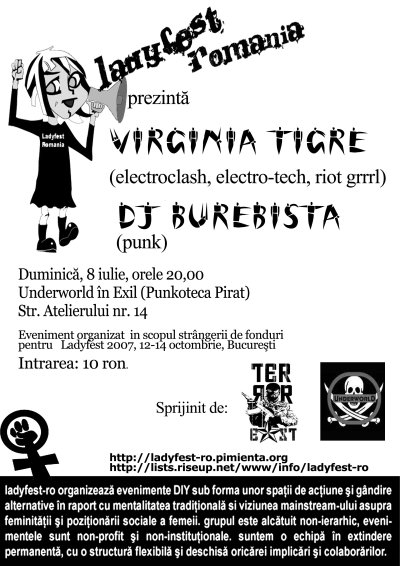Egypt Moves to Ban Female Genital Mutilation (6/29/2007)
Egypt’s health ministry announced yesterday that it would close a legal loophole allowing female genital mutilation (FGM), days after a 12-year-old girl died from the procedure…
UNFPA Briefing on New Report Focuses on Urbanization (6/28/2007)
The United Nations Population Fund (UNFPA) released its annual report on the State of World Population at a briefing this week at the National Press Club…
Setback for Saudi Business Women (6/28/2007)
Under new segregation rules, female bankers in Saudi Arabia are being separated from their male counterparts and supervisors…
New Anti-Rape Law in Thailand (6/25/2007)
The National Legislative Assembly of Thailand approved a new law last week that criminalizes marital rape…
Colombia to Pass Law Giving Rights to Same-Sex Couples (6/18/2007)
With backing from President Alvaro Uribe, a Colombian bill giving same-sex couples rights to health insurance, inheritance, and social security that recently passed by a 62-43 vote in Congress is likely to become law…
Fatal Shooting Outside Afghan Girls’ School (6/14/2007)
Two gunmen killed two girls and wounded six others, including a teacher, outside a girls’ school in Logar Province, Afghanistan on Tuesday…
Over 100 Women Activists Arrested in Zimbabwe (6/13/2007)
More than 100 members of Women of Zimbabwe Arise (WOZA) were arrested June 11 in Filabusi, Zimbabwe during a peaceful demonstration to launch the Peoples’ Charter, which includes demands for social rights and liberties…
Kuwaiti Women Barred from Working at Night (6/13/2007)
The Kuwaiti Parliament unanimously passed a law earlier this week to restrict women’s rights by restricting the hours that women are allowed to work…
Ministers in UK Government Draft New Anti-Discrimination Legislation (6/12/2007)
The United Kingdom government published today a consultation document that included proposals for a Single Equality Bill that will cover England, Wales, and Scotland…
Mozambique Considers Lifting Abortion Ban to Protect Women’s Lives (6/11/2007)
In order to improve the health and safety of women, policymakers in Mozambique have announced that they will consider lifting the country’s ban on abortion…
Afghan Radio Owner and Reporter Killed (6/6/2007)
Zakia Zaki, the owner and manager of Peace Radio and a headmaster of a girls’ school in Parwan province, was shot dead inside her home early this morning…
Report Links Discrimination Against Women and HIV Infection Rates (5/31/2007)
Physicians for Human Rights released a report on Friday demonstrating that discriminatory views against women contribute to the spread of HIV…
Mexican Supreme Court Will Consider New Abortion Law (5/31/2007)
The Mexican Supreme Court announced on Tuesday that it will hear a case filed by the National Human Right’s Commission (NHRC) and the Attorney General’s Office to determine whether Mexico City’s law allowing abortion in the first three months of pregnancy is constitutional…
Women’s Rights Activist Suspended from Afghan Parliament (5/22/2007)
Women’s rights activist and lawmaker Malalai Joya, a 29-year-old from the Farah province, was suspended from the Afghan Parliament yesterday after she described the Parliament as a barn full of animals…
and more…

